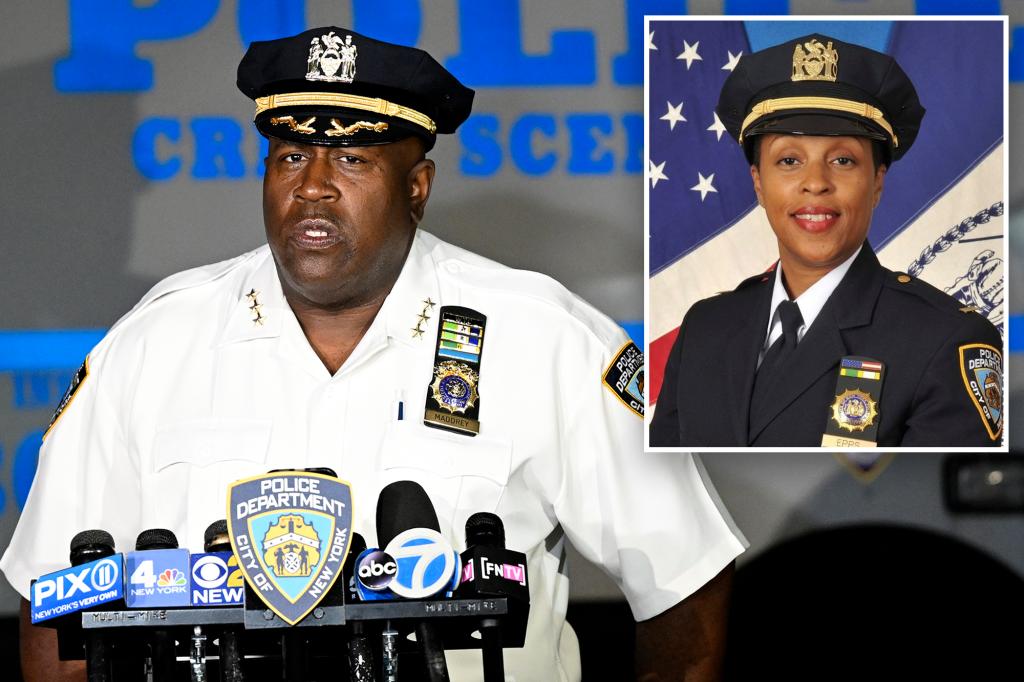The New York Police Department (NYPD) was rocked by a scandal in late 2023 when Chief of Department Jeffrey Maddrey, the highest-ranking uniformed officer, abruptly resigned amidst explosive allegations of sexual misconduct. Lieutenant Quathisha Epps, an officer under Maddrey’s command, accused him of demanding sexual favors in exchange for substantial amounts of overtime. Epps, who had garnered attention for earning an unusually high salary, including significant overtime pay, detailed a pattern of harassment and coercion by Maddrey. These allegations prompted an immediate investigation and Maddrey’s swift resignation, raising serious concerns about abuse of power within the NYPD.
Epps’s account painted a disturbing picture of Maddrey’s alleged behavior. She claimed that Maddrey’s sexual advances began after he ascended to the position of Chief of Department. Epps described specific instances of Maddrey propositioning her for sex in his office at One Police Plaza, including graphic details of unwanted sexual encounters. She alleged that Maddrey used his position of authority to pressure her into compliance, claiming he had both a “wish and a command” that she was expected to obey. Furthermore, Epps asserted that Maddrey leveraged her financial vulnerabilities, promising assistance with her impending home foreclosure in exchange for sexual favors.
The allegations extended beyond explicit sexual acts. Epps claimed that Maddrey also exploited her by demanding she perform tasks outside her official duties, often involving his purported girlfriend, another officer under his command. These tasks included apartment hunting and purchasing personal items for the other woman. Epps further alleged that Maddrey used coded language, specifically the term “DAP,” to signify his expectation of anal sex. This system of coded communication, coupled with his alleged demands for sexual acts in her office, underscores the pervasive and coercive nature of the alleged harassment.
Epps’s accusations also delved into Maddrey’s alleged manipulation of her finances. She claimed to have paid for a vacation for Maddrey and his wife, disguised as a gift, and was pressured to transfer ownership of an apartment held in her children’s name to Maddrey’s girlfriend. These allegations suggest a pattern of financial exploitation alongside the alleged sexual coercion. Epps admitted to her fear of coming forward, believing that her claims would be dismissed due to Maddrey’s high-ranking position. This fear of reprisal is a common concern for victims of workplace harassment, particularly when the perpetrator holds significant power.
Maddrey vehemently denied all allegations through his attorney, Lambros Lambrou. Lambrou characterized Epps’s accusations as a desperate attempt to deflect attention from her own alleged wrongdoing, specifically referencing an ongoing investigation into Epps’s substantial overtime earnings. He portrayed Epps as someone attempting to “take down as many people as she can” while facing scrutiny for potential misconduct. This defense strategy, often employed in such cases, aims to discredit the accuser and shift the focus away from the alleged perpetrator’s actions. The stark contrast between Epps’s detailed account and Maddrey’s complete denial created a complex and challenging situation for investigators.
The Maddrey scandal brought to light pre-existing allegations of sexual misconduct against him. A previous civil suit filed in 2016 by former officer Tabitha Foster, though unsuccessful, contained similar accusations of Maddrey leveraging his position for sexual favors. While a judge dismissed the case and cleared Maddrey, the resurfacing of these prior allegations added weight to Epps’s claims and raised questions about the thoroughness of previous investigations. The NYPD’s swift action in accepting Maddrey’s resignation signaled an attempt to address the immediate crisis, but the long-term impact on the department’s culture and accountability remains to be seen. The case underscored the pervasive issue of workplace harassment and the importance of robust mechanisms for reporting and investigating such allegations, especially within institutions like law enforcement.

